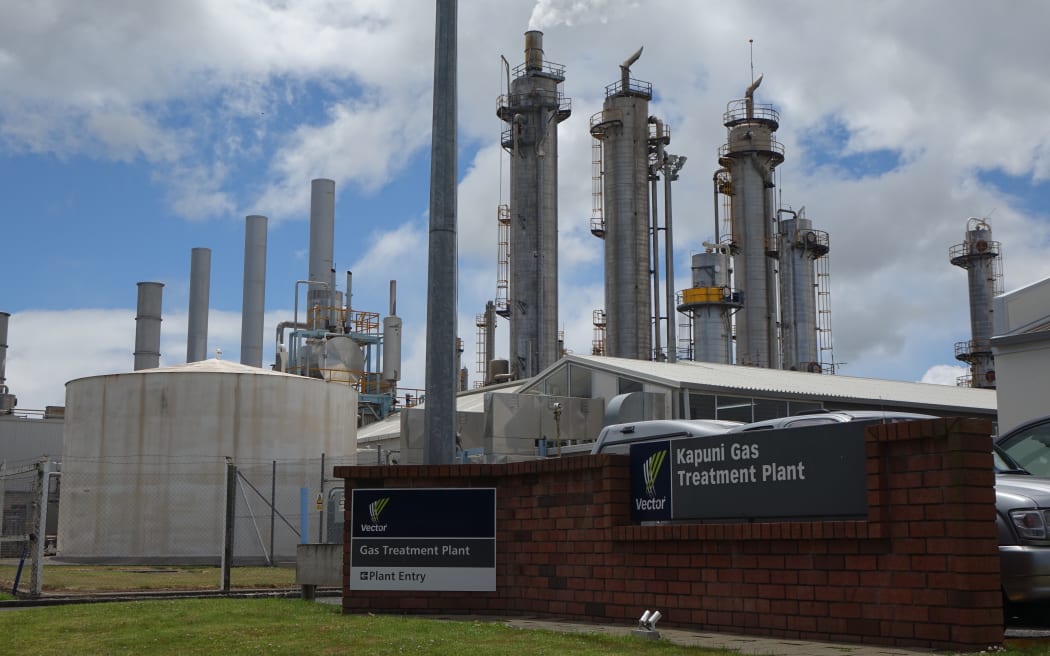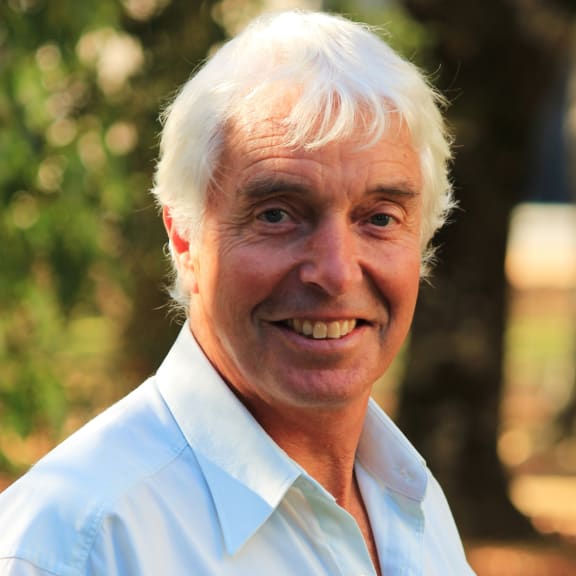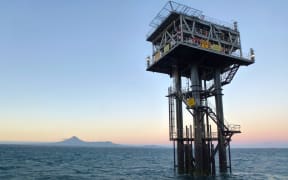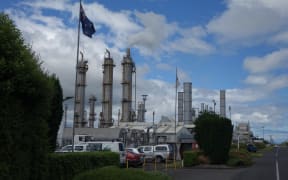
The Kapuni Gas Treatment Plant. Photo: RNZ / Robin Martin
A Todd Energy gas plant has been temporarily shut down over safety concerns.
The Kapuni liquid carbon dioxide plant in Taranaki has been New Zealand's only domestic producer of food-grade CO2 since the Marsden Point refinery was decommissioned last year.
Todd Energy has confirmed to RNZ the closure started more than two weeks ago, just before Christmas.
There is no reopening date yet.
Todd Energy is a subsidiary of the Todd Corporation owned by one of New Zealand's wealthiest families - employing 1000 people overall.
The original Kapuni plant was built 50 years ago.
In a written statement, Todd Energy chief executive Mark Macfarlane acknowledged the closure was "concerning" for customers.
"It was necessary to shut the plant to enable the issue to be clearly defined and to complete any resulting rectification work. The safe operation of the plant is our priority.
"Unfortunately, that means the plant is temporarily closed while we work through engineering solutions."
Customers were importing additional CO2 to meet demand, he said.
BOC Gas buys CO2 from Todd Energy and sells it in cylinders across Aotearoa.
It said Todd Energy was "experiencing an extended outage at its facility that is impacting CO2 supply to customers".
Amid the production halts, BOC said it was "currently prioritising supply of CO2 to critical medical, safety and water customers".
"Rationing allocations will be reviewed regularly in line with product availability."
While Aotearoa is trying to reduce carbon dioxide emissions, the processed gas from Kapuni is a different form, used by domestic, commercial and industrial appliances, on sites ranging from food and beverage factories to hospitals and water treatment plants.
Gas New Zealand chief executive Janet Carson said the product was "absolutely vital for industry and New Zealanders".
"We use it every day in products that most of us just take for granted, from fizzy drinks and beer, to tomatoes, to pre-packaged meats and many other uses, including in plastics."
She said in the long-term Aotearoa could transition away from using fossil gases like CO2, to renewable gases.
But in the meantime, customers relied on Kapuni.
"We've become reliant on smaller production, smaller supply to meet the demand which is growing."

Energy expert Ralph Sims Photo: Supplied
Briefing notes show Cabinet ministers were warned the loss of CO2 gas supplies from Marsden Point would put pressure on liquid CO2 supplies, in a paper titled Fuel supply resilience without a domestic oil refinery in November 2021.
The document said: "While there are other potential CO2 sources, including imports, closure of the refinery will challenge the CO2 supply chain - particularly [with] a short lead time to make necessary investments or relocate plant.
Energy expert and Massey University Emeritus professor Ralph Sims told RNZ: "We've got a short-term problem, which might happen again, every time Todd Energy does its maintenance."
He also said CO2 processing malfunctions could kill people.
"It's heavier than air, and therefore people have died when the CO2 from dry ice, for example, is built up, and therefore you are smothered. Because literally, the CO2 is taking over the oxygen you would have been breathing in."
Fonterra uses CO2 from Kapuni in its food processing, and the dairy company said to date, the ability to collect and process milk had not been impacted.
Taranaki hospitals also buy CO2 gas through BOC.
It is used for surgeries, stimulating breathing, and anaesthesia - and to sterilise equipment.
In a statement, Te Whatu Ora said there had been no direct impacts for Taranaki hospitals so far.
The Ministry of Business, Innovation and Employment said gas sector co-regulator Gas Industry Co was helping Todd Energy understand the scale and possible impacts of the outage, as well as potential solutions.
Gas Industry Co chief executive Andrew Knight explained the CO2 Kapuni provided was a byproduct of natural gas production.
"Businesses that use CO2 would typically manage their own supply chain risks, for example, by storing some reserve and contracting for standby supply."
He also said the regulator was "currently studying options for increased domestic CO2 production through carbon capture and storage (CCS) technologies, which are currently not used in New Zealand".
"CCS may have the potential to significantly increase domestic CO2 supply for industry. A draft report is expected in the first half of this year."
WorkSafe's petroleum and geothermal team has been notified of Kapuni problems, but is not directly involved.
In a statement, WorkSafe said: "We are aware of and support Todd Energy's approach to resolving the issue."
Air Liquide - another company that distributes gas from Kapuni - has not responded to RNZ's requests for comment.





